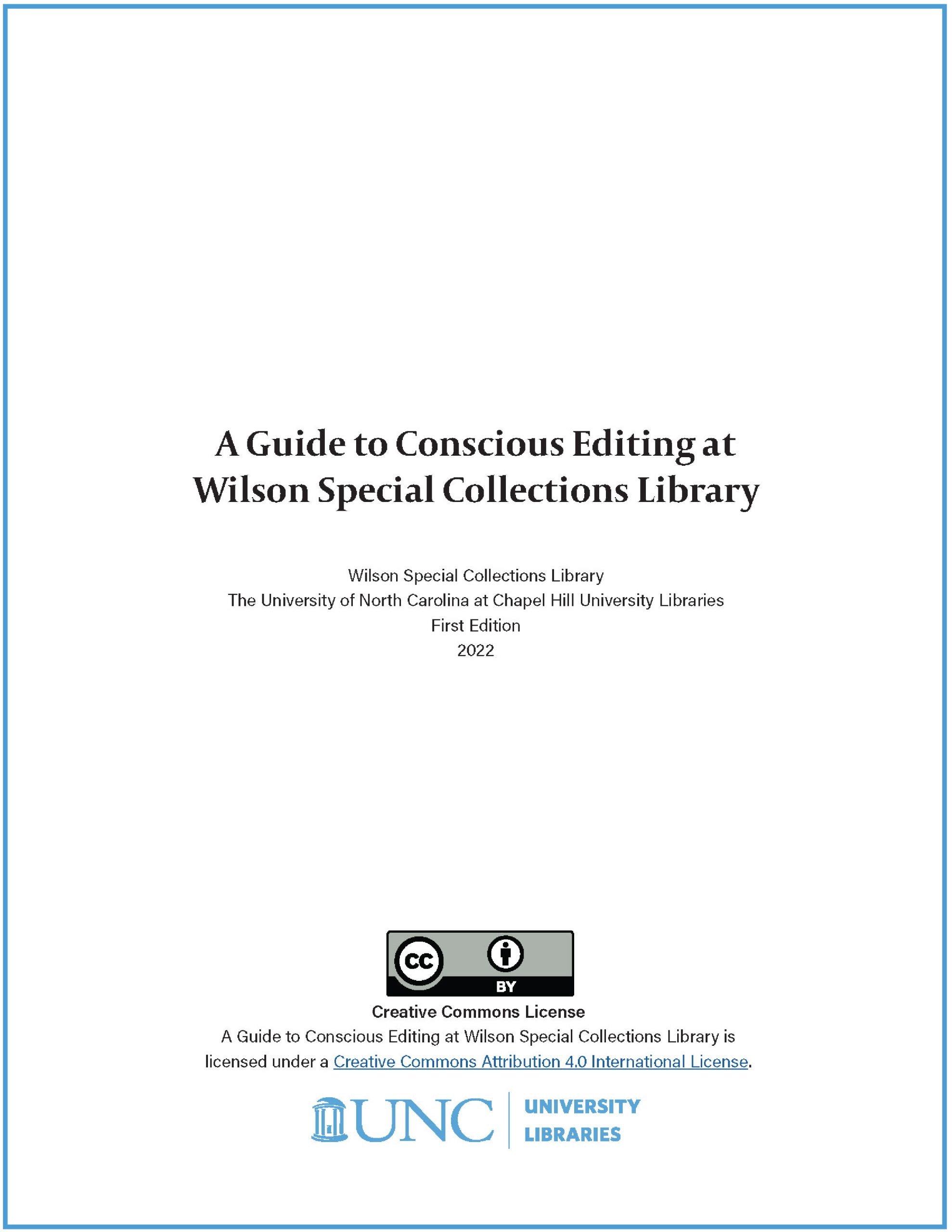The University Libraries at the University of North Carolina at Chapel Hill has released its Guide to Conscious Editing at Wilson Special Collections Library.

The University Libraries at UNC-Chapel Hill has released its guide to conscious editing as an open access publication.
The guide compiles practices that staff at the Wilson Special Collections Library have refined as they update, edit and create new archival finding aids. Finding aids are documents that describe the contents of archival collections. They help researchers identify materials of potential interest.
“Conscious editing is an ethos of care that we are using when we write about materials in the Library,” said archivist Dawne Lucas, who contributed to and helped finalize the guide. “It’s a way to be inclusive and make sure that collections are available and approachable to everyone – not just established scholars, but also students, genealogists and members of the community.”
Specialists at UNC-Chapel Hill have been building, organizing and describing archival collections for more than a century. Lucas said finding aids written in the past sometimes contain language that may be offensive or demeaning, or that can mislead researchers.
“Some of that language might be blatant racial slurs, or language that would today be considered insulting to groups of people,” said Lucas. “It might be an omission of information. For example, we have finding aids that went on at length about the accomplishments of a white family, but never acknowledged the people they enslaved.”
Updating this kind of language is “respectful, mindful and empowering,” said Maria R. Estorino, now interim vice provost for University libraries, in a 2021 story about conscious editing. It also ensures that researchers will have a better chance of finding information about individuals and groups whose voices have been historically marginalized, such Black communities, Indigenous people and some women.
Knowing that other archives and libraries frequently grapple with similar issues, the specialists at Wilson Library decided to share their work for others to learn from. “This was an effort to put forward our recommendations for best practices,” said Lucas.
Through 15 articles and more than 150 pages, the guide details the description decisions that archival and library specialists at UNC-Chapel Hill have made. It provides the rationale and context for each, along with before-and-after examples of legacy descriptions and edited language. It also indicates how the University Libraries is beginning to apply conscious editing principles to catalog records for books and other published materials.
Among topics that the guide includes are addressing racist language, rectifying misrepresentations of people of color, updating ableist language, centering the experiences of Indigenous peoples and differentiating the identity of a woman from that of her husband.
“As a state institution, we are deeply invested in making our collections available and accessible to everyone, and to being inclusive and accurate in our descriptions,” said Lucas. “We’re trying to do a better job so that people can see that the materials here represent everyone and are available to everyone.”


